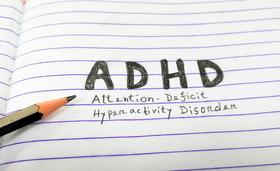Serving 37 students in grades 6-12, Boys And Girls Homes ranks in the bottom 50% of all schools in North Carolina for overall test scores (math proficiency is bottom 50%, and reading proficiency is bottom 50%).
The percentage of students achieving proficiency in math was ≤20% (which was lower than the North Carolina state average of 42%). The percentage of students achieving proficiency in reading/language arts was ≤20% (which was lower than the North Carolina state average of 45%).
The student:teacher ratio of 5:1 was lower than the North Carolina state level of 14:1.
Minority enrollment was 57% of the student body (majority Black), which was higher than the North Carolina state average of 55% (majority Black).
School Overview
Grades Offered
Grades 6-12
Total Students
37 students

Total Classroom Teachers
7 teachers

Students by Grade

School Rankings
Math Test Scores (% Proficient)
(12-13)≤20%
42%

Reading/Language Arts Test Scores (% Proficient)
(12-13)≤20%
45%

Student : Teacher Ratio
5:1
14:1

American Indian
5%
1%

Asian
n/a
4%
Hispanic
11%
20%

Black
38%
25%

White
43%
45%

Hawaiian
n/a
n/a
Two or more races
3%
5%

All Ethnic Groups



Graduation Rate
(12-13)≥50%
85%

Eligible for Free Lunch
19%
47%

Eligible for Reduced Lunch (01-02)
22%
8%
School Statewide Testing
School District Name
Source: 2013-2014 (latest school year available) National Center for Education Statistics (NCES), NC Dept. of Education
Frequently Asked Questions
What percent of students have achieved state testing proficiency in math and reading?
≤20% of students have achieved math proficiency (compared to the 42% NC state average), while ≤20% of students have achieved reading proficiency (compared to the 45% NC state average).
What is the graduation rate of Boys And Girls Homes?
The graduation rate of Boys And Girls Homes is 50%, which is lower than the North Carolina state average of 85%.
How many students attend Boys And Girls Homes?
37 students attend Boys And Girls Homes.
What is the racial composition of the student body?
43% of Boys And Girls Homes students are White, 38% of students are Black, 11% of students are Hispanic, 5% of students are American Indian, and 3% of students are Two or more races.
What is the student:teacher ratio of Boys And Girls Homes?
Boys And Girls Homes has a student ration of 5:1, which is lower than the North Carolina state average of 14:1.
What grades does Boys And Girls Homes offer ?
Boys And Girls Homes offers enrollment in grades 6-12
What school district is Boys And Girls Homes part of?
Boys And Girls Homes is part of Columbus County Schools School District.
Recent Articles

Unlocking Academic Excellence: A Guide to Advanced Placement (AP) Courses
Discover how AP courses empower students to pursue college-level studies, earn college credits, and stand out in the competitive admissions landscape.

Understanding ADHD in Children: Signs, Diagnosis, and Support Strategies
This comprehensive article explores the complex nature of attention-deficit/hyperactivity disorder (ADHD) in children, providing insights into its symptoms, diagnosis process, and effective support strategies. From recognizing early signs to navigating the diagnostic journey, parents will gain valuable knowledge to help their child thrive. Expert insights, real-life examples, and practical tips empower readers to create a supportive environment that meets the unique needs of children with ADHD.

March 04, 2024
Teaching in Contemporary TimesWe explore why individuals choose teaching, illuminating intrinsic motivations, the influence of role models, the pursuit of lifelong learning, and the aspiration to impact society.





